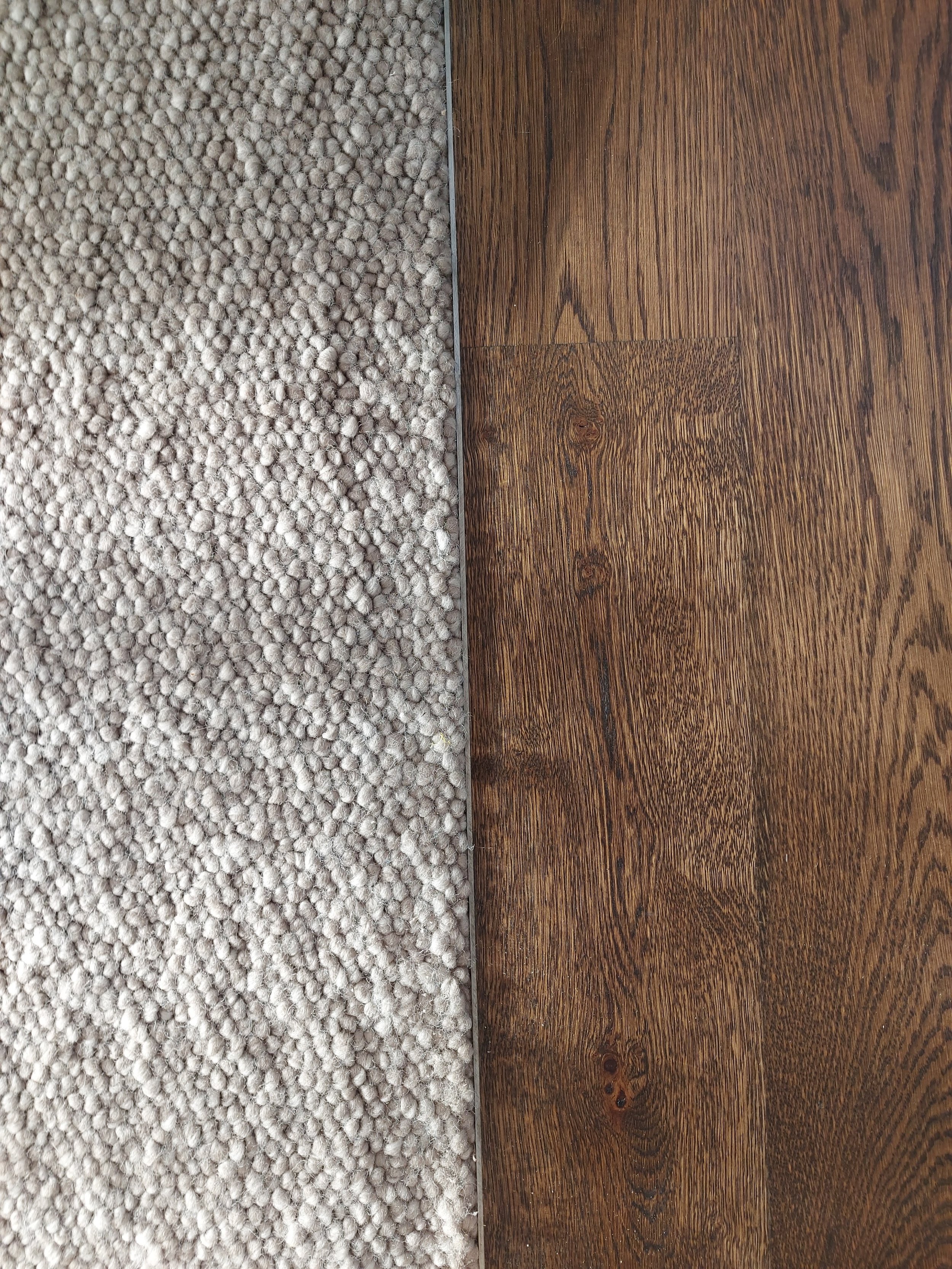
Can timber flooring be laid over tiles?
It is possible to lay timber flooring over tiles, but the condition of the existing tiles and the style of flooring that you intend to use must be considered. The tiles must be in good condition and level, with a clean and debris-free surface. A moisture barrier must also be installed between the tiles and the timber flooring. Before laying the timber flooring, it is also a good idea to use a levelling compound to provide a smooth surface to install on. It is always best to consult a professional before embarking on this type of project, since there may be numerous aspects to consider and plan for in order to ensure a good installation. Here at Abstract Floors, we pride ourselves on high levels of workmanship and a no-corner-cutting attitude. Get in touch to discuss your project.
Laying timber flooring over tiles can have both advantages and disadvantages.
Pros:
It can be a cost-effective option to alter the appearance of a space without removing and disposing of the current tile floor.
It can also help to hide any flaws or blemishes on the tile surface.
If the tile floor is in good shape and level, it can be a nice alternative.
Cons:
It might be difficult to produce a smooth and even surface for the timber flooring if the tile floor is not in good condition or level.
Moisture can leak through the tiles if they are not correctly sealed, causing harm to the timber flooring.
To ensure a proper installation, additional measures such as constructing a moisture barrier and levelling compound may be required.
It can be difficult to match the height of the tile floor and the timber flooring, which can provide tripping hazards or make transitioning between rooms problematic.
Again, it is critical to consult a professional before embarking on this type of project, as there may be numerous aspects to consider and plan for in order to ensure a good installation. If you would like some obligation free advice, get in touch with Abstract Floors today.
Solid vs engineered hardwood timber flooring. Which one is right for you?
What are the differences between solid and engineered timber flooring? We delve into the pros and cons of both.
Engineered oak flooring stacked prior to installation
Solid hardwood hardwood flooring and engineered hardwood flooring are both popular choices for homeowners seeking to add warmth and elegance to their home. However, there are some significant distinctions between the two types of flooring that should be considered before deciding which to install.
Solid hardwood flooring is constructed entirely of natural wood and is available in a range of species, including oak, maple, rimu and tawa. It is generally 19 mm thick and may be sanded and refinished several times to remove scratches and dings and restore its original beauty. One of the most significant advantages of solid hardwood flooring is that it can last for decades with proper maintenance and care.
Pros of solid hardwood flooring:
Durable and long-lasting
Can be sanded and refinished multiple times
Adds warmth and elegance to a home
Increases the value of a property
Cons of solid hardwood flooring:
Can be expensive
Can be damaged by moisture and extreme temperatures
Requires regular maintenance and care
Engineered hardwood flooring, on the other hand, is created by attaching several layers of cheaper wood or plywood to a layer of real hardwood. It is usually 12 mm to 20 mm thick and can be sanded and refinished, though not as frequently as solid hardwood flooring. Engineered hardwood flooring is more stable than solid hardwood flooring, which means it is less prone to expand, compress, or warp in reaction to variations in humidity and temperature, making it perfect for high-moisture areas such as kitchens, bathrooms, and basements.
Pros of engineered hardwood flooring:
More stable than solid hardwood flooring
Can be sanded and refinished
Can be installed in areas where solid hardwood would not be suitable
Can be more affordable than solid hardwood flooring
Cons of engineered hardwood flooring:
Can be less durable than solid hardwood flooring
Not as many sanding and refinishing opportunities
May not increase the value of a property as much as solid hardwood flooring
To summarise, both solid hardwood flooring and engineered hardwood flooring offer advantages and disadvantages. Solid hardwood flooring is long-lasting and adds warmth and beauty to a home, but it is costly and requires routine upkeep. Engineered hardwood flooring is more stable and can be installed in spaces where solid hardwood would be inconvenient, but it may not be as durable or add as much value to a home as solid hardwood flooring. Finally, the decision between solid hardwood flooring and engineered hardwood flooring will be influenced by your personal preferences as well as the unique needs of your home.


